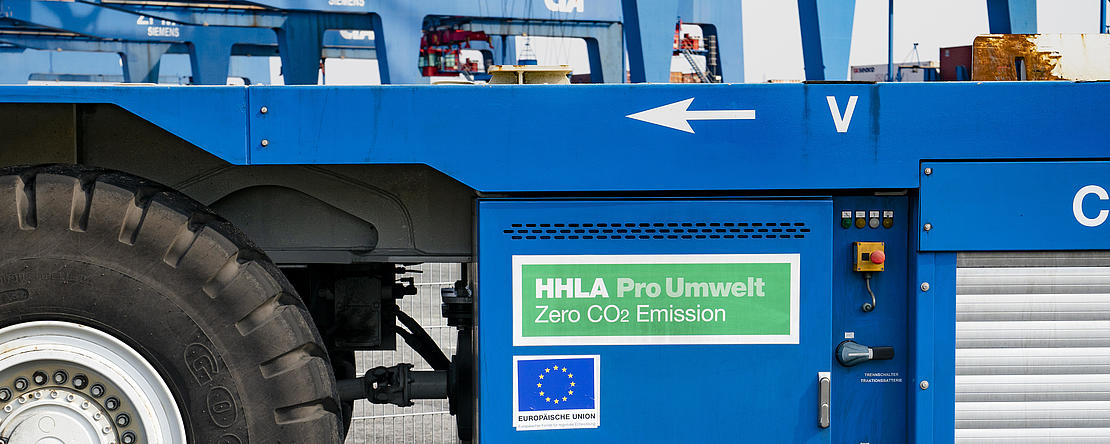21.06.2019

A lot of people are talking about sustainability, climate protection and the energy transition at the moment. HHLA is not just talking about these issues, it is taking action – and has been since before the Fridays for Future protests brought these topics to the forefront of social and political discussion. HHLA and ten of its subsidiaries have been members of the “UmweltPartnerschaft Hamburg” environmental partnership for ten years now. On 22 June 2009, HHLA joined the initiative run by the Hamburg Senate.
This partnership creates a link between ecology and economy, and its members publicly commit to voluntary corporate environmental and climate protection in Hamburg. Its active partners go above and beyond what the laws on environmental and climate protection stipulate. The initiative’s logo is known in Hamburg as a seal of quality for exemplary companies. The network now includes approximately 1,200 companies of all sizes from a range of sectors.
“HHLA belongs to Hamburg just as the environmental partnership does. The company is an active partner in our network and its environmental efforts make a contribution to environmental protection in Hamburg,” says Kerstin Neitzel, head of the UmweltPartnerschaft office at the Ministry for Environment and Energy, speaking about the ten-year anniversary.
On Tuesday last week, Chairwoman of HHLA’s Executive Board, Angela Titzrath, highlighted to the Annual General Meeting the significance of sustainable conduct for HHLA: “Sustainability has been a major topic at HHLA for a long time and is a subject we treat very seriously while we search for innovative solutions. We have a multitude of initiatives that address this topic.” To illustrate this, she spoke about the unique global project to convert the CTA’s AGV fleet to fast-charging lithium-ion batteries, and other projects. In addition to this, the company’s voluntary pledge to refrain from handling nuclear fuel in Hamburg and its self-imposed goal of cutting CO2 emissions per container handled between 2008 and 2020 to 30 percent, which was achieved ahead of schedule in 2018, are all indicators of its commitment.